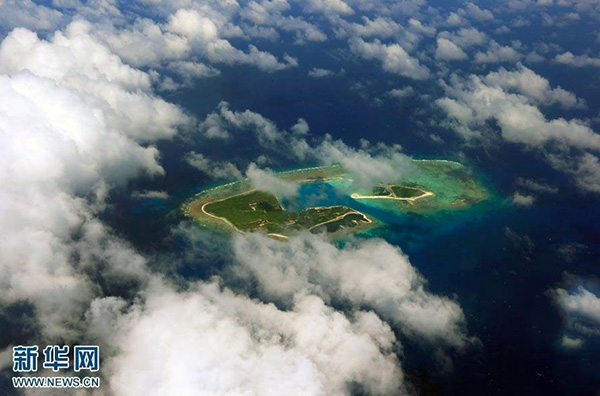|
 |
|
File photo of South China Sea. [Photo/Xinhua] |
Wikipedia has this to say about the PCA.‘The PCA is not a “court" in the conventional understanding of that term but an administrative organization with the object of having permanent and readily available means to serve as the registry for purposes of international arbitration and other related procedures, including commissions of enquiry and conciliation. The judges or arbitrators that hear cases are officially called "Members" of the Court.
The public at large is usually more familiar with the International Court of Justice than with the Permanent Court of Arbitration, partly because of the closed nature of cases handled by the PCA and also the small number of cases dealt with between 1946 and 1990. Sometimes even the decision itself is kept confidential at the request of the parties.’
To simplify, this is a private entity established to facilitate arbitration by member states on a willing buyer willing seller basis. It is quite like a commercial establishment, any member state can come to seek help to arbitrate their disputes. It is not a court! It is not a world body like the UN or sanctioned by the UN. Its jurisdiction and ruling are as good as the disputing parties want it to be. It has no authority and no legal status if a disputing party is not willing to subject itself to its arbitration. The closest example of such a court is the international court in Tanjong Pagar in Singapore, a convenient store for customers to avail themselves of its facilities.
I hope this is clear and no one should go on to believe that it is akin to the International Court of Justice, a UN organization. This South China Sea dispute that the PCA was hearing has no credibility and legal standing as the other party did not oblige or agree to the arbitration. What China said, that it is piece of waste paper is as good as it could be.
The Americans and its allies have tried to deceive the world that the PCA’s rulings on the Philippines submission are binding and legal. This is hogwash. How could it be when it is not a court of law? How could it be when it is a tribunal for willing parties to seek arbitration when there is an unwilling party (China) that refused to participate and did not even make any representation on the case?
Having established the basis and nature of the PCA, it would be interesting if the Philippines would to file another case to claim the state of Sabah as part of the Philippines. And it is expected that Malaysia would object and would decline to participate in such a trial settlement. But given the support of the Americans, the PCA could go ahead to appoint a panel of judges without the consent of Malaysia and come out with a judgment in favor of the Philippines. And the PCA could then declare that its ‘judgment’ is final and binding on Malaysia.
Would Malaysia agree to the judgment, would it be legal and binding on Malaysia? Many similar cases and judgments could be brought to and decided by the PCA which the Americans would like the world to believe is a world body with the authority to impose its judgment on unwilling nation states and expect them to abide by it.
The most dangerous implications arising from this precedent, if it can be called a precedent, would be on countries agreeing to the Trans Pacific Pact (TPP) that the Americans are proposing. The members of this TPP would come under the jurisdiction of the PCA for obvious reasons and they have no rights to be excluded from its judgment, and its decision would be final and binding.
This could be a test case and a precedent that the Americans are trying to set to impose on the members of the TPP with the PCA doing its bidding like in this South China Sea case. Can members of the TPP and members of the PCA expect a fair hearing when they can be put on trial against their objections? Would any country be willing to be ruled by an organization like the PCA to determine the fate of their disputes, even their sovereignty without their consent?
The PCA cannot be seen to be an authority or a court to rule over nation states. It is a miscarriage of justice and an attempt to usurp the rights of a nation state in matters of the state and sovereignty if the PCA, a commercial organization, is deemed to have such authority.
Can a commercial tribunal rule over nation states and its judgment be binding against the objection of nation states?
The author is a political observer from Singapore.
The opinions expressed here are those of the writer and don't represent views of China Daily website.